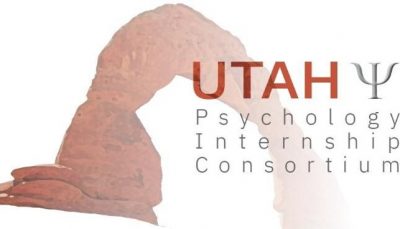Join our Team!
The growing needs of our community means we are regularly seeking like-minded individuals to join our team. Please email us at solsticeheber@gmail.com if are interested in living the good, mountain life!
If you are interested in our Internship or Post-Doc opportunities, continue scrolling for more information.
Doctoral Internship Training Program
PRACTICE DESCRIPTON
Dr. Miller founded Solstice Counseling & Wellness in 2013 in response to the limited psychological assessment and treatment services for those residing along the Wasatch Back. During this time, Dr. Miller has built a solid professional reputation in the area and has maintained an increasing stream of client referrals from the community since starting the practice. The training opportunities for students was built upon Dr. Miller’s passion for supporting this underserved community and more recent passion project of his which led to joining the APA Accredited Utah Psychology Internship Consortium (UT-PIC) in the training of tomorrow’s psychologists. Solstice is currently the only APA-accredited private practice training site in the state of Utah! What further distinguishes Solstice Counseling & Wellness from other service providers is our creative approach to clinical services, while upholding high standards of care to deliver services that are intrinsically motivating to our clients.
 We receive referrals from a broad range of sources: pediatric and family medicine practitioners, Employee Assistance Programs (EAP), insurance companies, family lawyers and the courts, child welfare professionals, local children’s agencies, the Children’s Justice Center (CJC), Crime Victim Advocates (CVR) and local schools. Assessment referral sources can be, but are not limited to, Work Force Services of Utah, the courts, other local health care providers, insurance companies, and 3rd party contactors for the Veterans Administration. Given the breadth of referrals, we provide services to both the general mental health population in the region as well as harder to serve, more complex client challenges commonly found in underserved and somewhat remote locations.
We receive referrals from a broad range of sources: pediatric and family medicine practitioners, Employee Assistance Programs (EAP), insurance companies, family lawyers and the courts, child welfare professionals, local children’s agencies, the Children’s Justice Center (CJC), Crime Victim Advocates (CVR) and local schools. Assessment referral sources can be, but are not limited to, Work Force Services of Utah, the courts, other local health care providers, insurance companies, and 3rd party contactors for the Veterans Administration. Given the breadth of referrals, we provide services to both the general mental health population in the region as well as harder to serve, more complex client challenges commonly found in underserved and somewhat remote locations.
POPULATION SERVED
Clientele consists of varying age groups across the life span; from children ages 6 and up, through elders (80+) residing in our community. The ratio of children to adults and female/male is roughly a 40-60 split. Over 90% of clients are Caucasian. Most adult clients and families can be considered working middle class with at least a high school education. Clients show variability relative to socioeconomic status from those who are more well off to those at or below the poverty line. Educational background can include individuals who have dropped out of high school to those with advanced degrees. While most individuals are likely to be working full time jobs, we also serve those that can’t and might be on long term disability. Clients present with a diversity of problems/issues with most adult clients having a mood, anxiety, or adjustment disorder, along with some sort of relationship conflict. Many adolescents present with mood and anxiety disorders as well, along with adjustment-related signs and symptoms. Children tend to present with Attention Deficit Hyperactivity Disorder, non-compliance, aggressive behavior, school-related problems, symptoms associated with separation/divorce, other adjustment-related issues, and/or learning disorders. Most clients are self-referred, lending themselves to being highly motivated and open to the treatment process. There is individual diversity with respect to intellectual and adaptive behavior functioning. There is also variability in working with those with more acute and recent symptom expressions to those that have a more chronic long-standing condition. We also see a variation across clients in terms of symptom severity from mild to severe. While the above information provides an overview of who our clientele is likely to be from these different perspectives, those receiving services can be considered higher functioning and have decent resources to support and advance the therapeutic process.
TRAINING PHILOSOPHY
The focus of our training program is on the consolidation of clinical skills and the application of the scientist-practitioner model to clinical practice. We believe in providing a holistic, well-rounded training experience that emphasizes not only the development of foundational professional skills (i.e., assessment, diagnosis, consultation, treatment, and professional and ethical issues) but also the importance of the broader context influencing growth as well as the unique human experiences and qualities that help shape an emerging professional identity. Therefore, interns will be trained as a generalist guided by the above principles. We believe that good clinical practice has both an empirical basis and clinical relevance. We also believe that it is important to be creative yet maintain fidelity in applying evidence-based practice in working with members of the community. We strive to provide highly applied training experiences so that interns may apply and consolidate the rich research, theory and clinical training they received in graduate training in a practical, integrative and creative manner. At the applied clinical level, we value taking a developmental and theoretically integrative approach to the assessment and treatment of clients. Therefore, trainees will learn to formulate integrative case formulations considering multiple levels of influence producing vulnerability to mental health symptoms. Interns will also learn how to think critically and integrate elements of theory, empirical research and practice from a range of theoretical orientations to inform clinical practice.
 At the individual level, we value the unique experiences, worldview and contributions of every member of our team. We appreciate that the intern will arrive at our training program with their own unique training and life experiences and have developed personal meanings from these experiences. We strive to help them understand and respect the culmination of their prior graduate training experiences and integrate this understanding within their own personal, cultural and professional values in developing their own training goals, theory of practice, professional identity, and commitment to life-long growth and learning. We take a gradual approach to the development of professional skills in our training, with more direct ‘hands-on’ modeling and live supervision of newer clinical skills and a gradual emphasis on increasing levels of independence as clinical skills progress. We also value fostering a sense of professional responsibility and accountability to ourselves, clients, colleagues and the broader community for the unique decisions we face in our role as practicing professional psychologists. The privilege of joining a self-governed profession, requires strong self-awareness, reflection and evaluation in order to uphold the responsibility of this privilege. Again, we strive to model and guide the interns in what it means to practice ethically and responsibly in all aspects of our clinical work as practicing psychologists. While the training program is primarily focused upon building solid clinical skills and the application of them in an effective individualized manner the intern will also have the unique opportunity to immerse themselves in what it takes to effectively manage and be successful in running a private practice of their own.
At the individual level, we value the unique experiences, worldview and contributions of every member of our team. We appreciate that the intern will arrive at our training program with their own unique training and life experiences and have developed personal meanings from these experiences. We strive to help them understand and respect the culmination of their prior graduate training experiences and integrate this understanding within their own personal, cultural and professional values in developing their own training goals, theory of practice, professional identity, and commitment to life-long growth and learning. We take a gradual approach to the development of professional skills in our training, with more direct ‘hands-on’ modeling and live supervision of newer clinical skills and a gradual emphasis on increasing levels of independence as clinical skills progress. We also value fostering a sense of professional responsibility and accountability to ourselves, clients, colleagues and the broader community for the unique decisions we face in our role as practicing professional psychologists. The privilege of joining a self-governed profession, requires strong self-awareness, reflection and evaluation in order to uphold the responsibility of this privilege. Again, we strive to model and guide the interns in what it means to practice ethically and responsibly in all aspects of our clinical work as practicing psychologists. While the training program is primarily focused upon building solid clinical skills and the application of them in an effective individualized manner the intern will also have the unique opportunity to immerse themselves in what it takes to effectively manage and be successful in running a private practice of their own.
PROGRAM STRUCTURE
The training program at Solstice will take a developmental approach over the course of the full year to supervise, teach and foster the development of a breadth of clinical skills in psychological assessment and intervention with children, adolescents and adults. The training program adheres to the UT-PIC structure offering a one-year, 2000-hour, full-time doctoral internships beginning and ending in August. The start date for the 2024-25 cohort is August 1, 2024. The Consortium provides a range of clinical and didactic experiences that represents the necessary depth and breadth required for future professional practice within psychology. Interns have a primary placement at one of five sites, with both required and elective rotations and other training experiences at other sites within the consortium. Across training sites, interns are expected to complete a full-time internship during the course of the internship year, of which at least 25% (500 hours) are spent in the provision of direct face-to-face clinical services. Interns are expected to achieve the internship program aim and objectives, as stated in the UT-PIC brochure (Which can be found here under general information: https://www.ut-pic.org/) and to abide by the APA Code of Ethics, the requirements of the UT-PIC training program, and the policies and procedures of their primary training site.
UT-PIC trains clinical psychologists who are effective consumers of research and who utilize scholarly inquiry to inform their practice. UT-PIC offers generalist training with a focus on rural and underserved populations, with the opportunity for specialized training that varies across training sites. More information about each training site and the resources and opportunities offered by each is provided on the link found above.

Post-Doc Training Program
Solstice Counseling and Wellness is recruiting a Postdoctoral fellow to join their small and growing group practice.
“Building and supporting a community of psychology professionals to strengthen the community” is one of the central missions of Solstice. This is advanced by the importance placed upon supporting all employees in the organization. By doing all we can to create a flexible and supportive environment, staff are better equipped to effectively respond to the unique needs of the rural community in which it operates. Our office philosophy strongly encourages providers and staff to set schedules that meet the needs of the practice as well as their individual needs for work/life balance. We are currently closed on Fridays allowing for extended weekends to refresh and enjoy life.
PROGRAM STRUCTURE AND TRAINING PHILOSOPHY
Fellows will receive at least 1 hour of weekly individual supervision with a licensed clinical psychologist, participation in clinical consultation group, and funds towards professional development. Solstice is working with the APA accredited Utah Psychological Internship Consortium (UT-PIC) which affords many more professional development experiences including but not limited to group supervision and weekly didactic trainings. The position aims to prepare the Postdoc to accrue the necessary clinical hours to sit for the EPPP and move toward licensure. We are seeking a motivated, professional self-starter who has an interest in working in a group private practice long-term. Being a self-starter, having excellent interpersonal communication skills, a high level of attention to detail and the ability to be consistently reliable are essential.
The Post Doc Fellow’s primary responsibilities include conducting intake assessments, providing individual, couple, and group psychotherapy as well as opportunities for psychological assessment and testing. The selected fellow may also be invited to attend monthly meetings at the local Child Justice Center, facilitate a didactic training for the current UT-PIC intern cohort, conduct at least one psychotherapy group and facilitate four free community-based workshops on relevant topics. Secondary responsibilities include administrative tasks, networking with other clinicians, collaborating with practitioners across disciplines and professional development.
REQUIREMENTS
- Certified Psychology Resident License (through DOPL) – https://dopl.utah.gov/psych/certified_pyschologist_resident_application.pdf
- Doctoral degree (Psy.D./Ph.D.) from a school, counseling or clinical psychology program
- Completion of an APA approved doctoral internship
- Establish and maintain a full case load of clients (24+/wk)
TO APPLY
Please email your CV and cover letter of interest to the training director:
Dr. Shawn Michael Miller at solsticeheber@gmail.com
ADDITIONAL INFORMATION
| Agency Type | Private Practice Clinic |
| APPIC Membership | No |
| APA Accredited | No |
| Emphasis or focus area | Rural Mental Health Private Practice |
| Other Emphasis | Assessment |
| Research Time | No research time |
| Training Director | Shawn Michael Miller, Ph.D. |
| Contact Email | solsticeheber@gmail.com |
| Contact Phone | 435-654-4037 |
| Virtual Interviews | Available |
| Duration in Months | 12 |
| Hours per week | 32+ |
| # of Licensed Supervisors | 2 |
| Number of Positions | 1 |
| Stipend | $50k |
| Start Date | August 1st (flexible) |
| Will Follow APPIC Selection Guidelines | No |
| Fringe Benefits | We offer an additional $400 annually for continuing education |

